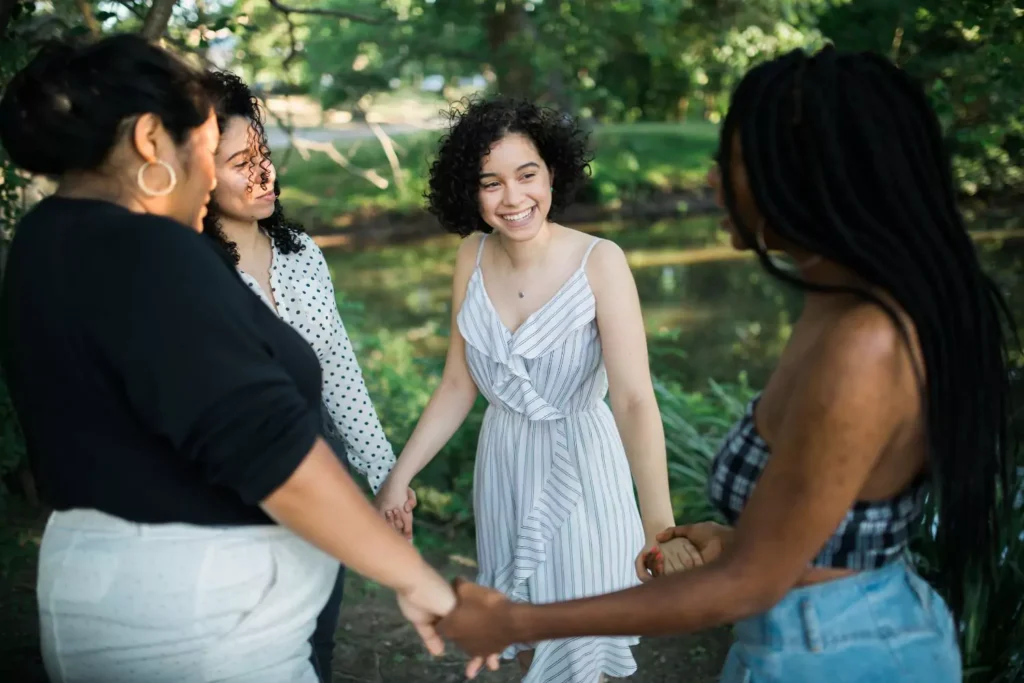Click here to listen to this article.
For over a century, women’s causes have been the subject of ongoing discussion. Multiple campaigns have been waged for women’s rights, and many laws have been passed granting voting rights, workplace rights, protection from discrimination, and more. As a result, women are given more opportunities today than at any other time in history.
Yet one scroll through today’s headlines or your social media feed proves there’s still plenty of unrest and divisiveness around women’s causes. We hear the loudest voices on all sides with views about the roles of women in our communities, churches, families, and society at large. Women themselves continue to advocate for their value, potential, and place in the world.
What are you worth?
While most of what you hear links this conversation specifically to women’s fight for equality, this is not merely a women’s issue. This is a human issue. Women and men have forever felt the need to prove our worth through accomplishments and status.
Until we each deal with this fundamental desire — at its core an issue of the heart — no recognition, personal accomplishment, or victory for women’s rights will ever solve our inner dilemma. The looming questions in our minds — What is my purpose? What makes me valuable? Where do I fit in this picture? — are not gender-specific. So it follows that gender-specific efforts will not give us complete answers.
Before we can look at the value of women, we need to look at the value of humankind. As Christians, we believe that we were created by an eternal God. Typically, when something is created, its purpose is chosen by the creator. The one who made it knows what it is intended for and what it needs to function best.
Our Creator tells us exactly why we are on this earth. He created us to have genuine fellowship (friendship) with Him and to bring Him glory (adoration, praise, honor) in our daily lives (Isaiah 43:7, Revelation 4:11, and John 15:14-15). As my pastor explained,
“Our universal purpose is to bring glory to God through how we live, serve others, and point them to Jesus.”
God made each of us unique, which means we each live out this larger purpose in individual ways. This is where the distinctions between men and women come into play. God undoubtedly designed men and women differently; Scripture itself (and basic observation) supports this. But nowhere in the Bible does God assign more value to one gender than another or give permission to demean either one. Creation wasn’t complete until He formed both man and woman.
So if both men and women are of equal and infinite value yet unique from each other, what does this mean in everyday life? What insights and abilities do women bring to the table, and where and how do giftings and personality differences come into play?
Perhaps the best way to answer these questions is to look at how Jesus interacted with women during His time on earth.
Jesus offered women dignity and respect.
In first-century Palestine, women were often treated like children or even property, with no rights of their own. Their value was inextricably linked to marriage and childbearing. Any woman who did not fit the cultural mold (e.g. single, widowed, childless, etc.) was generally pitied and left to fend for herself. Without a man by her side, a woman was rendered invisible.
Yet Jesus went out of His way to treat these neglected women with the respect and dignity due them as human beings made in God’s image. Remember the woman with the issue of bleeding in Luke 8? Considered unclean, she would have been isolated for 12 years, living in poverty. According to the Jewish laws, when she risked touching Jesus’ clothes in a crowd, He could have ignored or reprimanded her.
Instead, He searched for her and then called her something she may have not heard in years: “Daughter.” In one gracious word, Jesus swept away her invisibility and poured respect, dignity and favor on her. He made it even better by adding, “Your faith has made you whole.”
Likewise, Mary Magdalene, possessed with seven demons, was most certainly a social outcast. Yet Jesus saw her inherent worth and potential. He cast the demons away and she became one of His close disciples, witnessing His miracles and teaching firsthand.
The poor widow who gave two mites at the temple was probably overlooked by most people there. Yet Jesus pointed her out — no one else — to His disciples and praised her above everyone, giving her the honor of a permanent place in Scripture.
Jesus cared deeply for the women in His life.
Not only did Jesus respect women, He valued His relationships with them. They were never just a means to an end. He was genuinely concerned about their circumstances and feelings.
Consider how He responded to Mary and Martha when their brother Lazarus died. He listened to their heartfelt cries, and when He saw their suffering, He reacted with empathy. The Son of God cried with them. Even though He knew their grief would soon end in a miracle, He did not brush past it or look away in discomfort. Instead, He stepped closer and shared it with them.
Remember also some of His last recorded words from the cross. Jesus directed His follower John to look after His mother Mary as if she were John’s own mom. One of the God-man’s final dying thoughts was of His mother. He did not want her left unprotected or alone. Even in His greatest pain and shame, He was taking care of one of the dearest women to Him.
Jesus welcomed women’s involvement in His ministry.
In ancient Jewish culture, only males were given any kind of formal education or discipleship roles with the rabbis. Women’s opportunities were limited primarily to the home.
Yet in Luke 10:38-39, we find Mary of Bethlehem (Lazarus’ sister) seated at Jesus’ feet beside His male disciples, listening to Him teach. We also see female disciples traveling with Him from town to town. Not once do we see Jesus turn them away. When performing miracles in large crowds, the Bible notes that He taught and cared for men and women alike Jesus granted women access to God in a way that culture never had.
Not only did women learn from Jesus firsthand, they also provided Him with food, shelter and financial support. With no income or home of His own, Jesus relied on others to provide for His physical needs as He taught, mentored and healed full-time. As He traveled, there were homes like Mary’s and Martha’s that became a sanctuary for Him whenever He passed through town.
Other women including Salome, Joanna and Susanna gave financially to Jesus’ ministry to keep Him and possibly His 12 closest disciples from going hungry. After Jesus’ ascension, the early church continued in His example, welcoming women into the center of the Christian movement (Acts 1:13-14, 8:3, 17:12).
Jesus tasked women with critical responsibilities in His Kingdom.
Jesus did not reserve the most important responsibilities for his male disciples alone. Instead, He specifically chose women to participate in some of the most pivotal moments of His ministry.
Remember the story of the Samaritan woman at the well? We hear a lot about the significance of Jesus traveling through a Samaritan town that most Jews went to great lengths to avoid. Yet it is equally amazing that Jesus was waiting for someone specific that day. Not a town official or religious leader; he was waiting for a woman — a woman with a questionable reputation and no real family, a woman perhaps so spurned by the townspeople that she waited to gather water when she knew no one else would be at the well.
But on this day, Someone was waiting there just for her. Jesus saw her need and chose this woman to be the very first person outside of His closest followers to whom He revealed himself as the Messiah.
In this one interaction, Jesus broke many cultural barriers. To start, He chose to publicly reveal himself to a people group despised by the Jews. And whom did He choose as the first person to share that the Messiah had come — to lead the first crowd of people to Jesus and start a town-wide revival? A woman. A woman most likely scorned by her own people. As Shannon Bream says in her book “The Women of the Bible Speak”:
“This one story shows us there is no room for either racism or sexism in the Kingdom of Heaven.”
In an even more pivotal moment, who first discovered that the Messiah had come back to life after the crucifixion? It wasn’t a priest or Pharisee or even one of the Messiah’s 12 disciples. It was a group of women including His mother and His disciple Mary Magdalene. They were also the first people to see the resurrected Jesus. In short, these faithful, treasured women were the first human beings to hear the complete gospel story, the first to believe it, and the first to share it.
This would have been especially surprising at the time. According to Mark Clark’s book “The Problem of God”:
“In that culture, women were not allowed to testify in a court of law because their testimony was considered untrustworthy.”
Even the disciples discounted the women and thought they were talking nonsense when they came to share this life-changing news. But Jesus deemed these women worthy of the role and purposely granted it to them. [note] For further study on the women of the New Testament, here is a complete list.[/note]
No need to fight
Through these interactions and more, Jesus left no question as to how He views women’s capability, value, or worthiness of respect. It didn’t matter if they were young or old, single or married, or even Jew or Gentile. In a society that shunned specific people groups, races and genders, Jesus viewed them all as candidates for love, respect — and salvation.
As Creator, God is the only one who gets to determine His creation’s worth. Ours should no longer be in question. Whether man or woman, our value was granted to us by our Creator, and proven by our creation and redemption.
As humans (not just as women), our inherent worth and purpose does not change when we graduate from grad school, land our dream job, get married, or have our first child. It is constant and unchanging, sealed before time so we can never do anything to earn it. This is good news, freeing news, empowering news — and a cause we can all get behind.
Copyright 2024 Jessica Swanda. All rights reserved.











